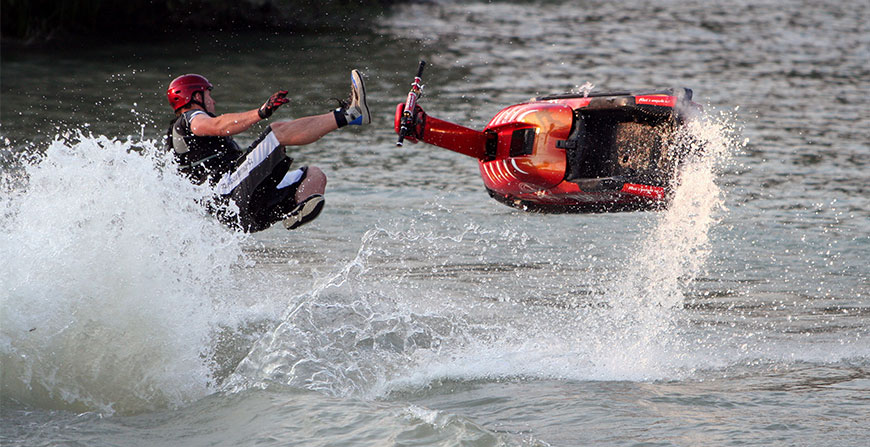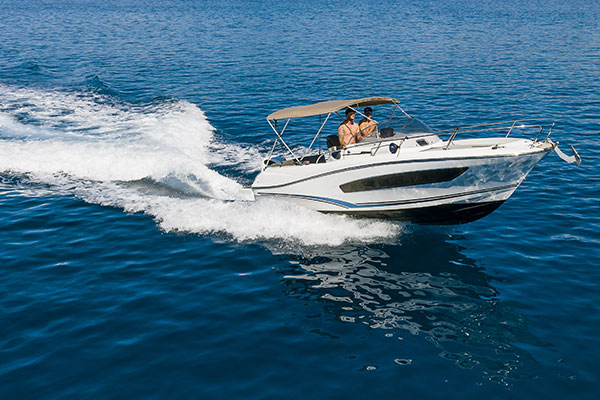
Fort Worth Boat Accident Attorneys
Strong advocacy for all types of boating and recreational water activity accidents in Texas
The Texas hot summers and mild winters make water-based activities a year-round attraction for Fort Worth residents and visitors. Whether you’re interested in fishing, exploring, laying back in the sun, waterskiing, or just daydreaming, Fort Worth’s lakes and waterways have something for everyone. However, a relaxing day out can be severely dampened when the people around you fail to follow local rules or act carelessly and recklessly.
At Slack Davis Sanger, our Fort Worth boat accident attorneys are boat owners and operators ourselves. We are also skilled litigators who understand just how dangerous boating and other water activities can be, and what kinds of devastating injuries can arise from someone else’s negligence. Our personal injury lawyers are experienced trial attorneys who can guide you through the process of a trial or a settlement negotiation so that you can make the right choices for yourself and your family. Contact us in Fort Worth when you or a family member are injured in a boating accident so we can help you.
Involved in an Accident?
We're Ready to Help
Practice Areas
- Personal Injury
- Commercial Truck Accidents
- Car Accidents
- Worksite Accidents
- Defective Vehicles
- Medical Malpractice
- Wrongful Death
- Burn Injury
- Traumatic Amputation
- Spinal Cord Injury
- Traumatic Brain Injury
- Pharmaceutical Negligence
- Lyft Accidents
- Uber Accidents
- Distracted Driving
- Boat Accidents
- Product Liability
- Construction Accident
- Oil Field Accidents
- Pipeline Accidents
- Class Action
- Aviation Accidents
- Whistleblower
Quick
Questions
What are some popular waterways in Fort Worth?
Fort Worth is a popular destination for many reasons, including the beautiful rivers and lakes in and around the city. Slack Davis Sanger has represented people of all ages who were hurt in any type of boating or personal watercraft (PWC) accident on the following waterways.
|
|

Why do boating accidents happen in Fort Worth?
For a successful boating accident claim, it is necessary to show how the accident occurred. Common causes of boating accidents in Fort Worth include:
Operating while impaired. Operating a watercraft while intoxicated is illegal in Texas. The same principles that apply to driving cars while intoxicated applies to boat jet ski, and other watercraft operators. Just one or two drinks can impair your judgment. If your blood alcohol level is .08 or higher, the legal standard for Texas, an operator is considered intoxicated. However, you should know that an operator does not need to have a .08 BAC be considered impaired; any amount of alcohol or drugs which affect one’s mental and/or physical abilities is unsafe. Sadly, for too many boat operators, drinking and driving a boat seem to go hand in hand, which is why about half of all boating accidents involve some level of intoxication or impairment.
Lack of training and/or experience. Operating boats of any type or size requires experience, so operators can anticipate and respond to any dangers. Any boat operator who was born after September 1, 1993 is required by the Texas Parks and Wildlife Department (TPWD) to show they completed an authorized TPWD course before they can operate a vessel powered by a motor of more than 15 horsepower or a windblown vessel over 14 feet in length. Sadly, one course does not indicate that an operator is experienced enough to be safe. A combination of inexperience and poor decisions making skills is a leading cause of boat accidents.
Reckless, speeding, or negligent operators. Many boat operators fail to use caution. Instead, they see the water as an opportunity to take chances. When the operator of a boat speeds, gets too close to other boats or people, fails to follow the navigational rules, or operates their boat while distracted, accidents can easily happen.
Defective equipment. Boats that are defective may not maneuver properly, cause carbon monoxide poisoning, or fires. Defective boating equipment includes faulty battery chargers, engines, and fuel systems. Life jackets and other accessory equipment may cause serious injuries or fail to prevent deaths from occurring. There are enough challenges trying to reach safety from a boat that is sinking, capsizing, or on fire; ensuring there is enough safety equipment – and that passengers know how to use it – is a critical component in the event of a boat accident.
Bad weather. Many boats offer little protection to operators and passengers when it rains. The pouring rain can make it difficult to see and to steer. Wind can create havoc for all watercraft, especially sailboats and other types of lighter vessels. Operators must check the weather. They need to know what steps to take when the elements are bad – including when to return to shore.
Low visibility and/or light. Unlike cars, trucks, and other land-based vehicles, boats, jet skis, and watercraft do not have prescribed lanes of travel. When the sun goes down or the fog rolls in, it can be difficult to determine whether or not you are traveling toward another vessel or stationary object, like a dock or buoy. It can also make it more difficult for rescue teams to find you. All operators must ensure their lights are in working order, and should keep to lower speeds if they must travel in low light or low visibility.
What types of boat accidents do your lawyers handle?
Our Fort Worth boat accident lawyers have more than 200 years of combined experience fighting for personal injury victims, including boat and PWC accident victims. We represent boat operators and passengers. We handle claims involving injuries that happen on the water, and injuries that occur on docks, including admiralty claims for those who are injured offshore or in open waters.
The attorneys at Slack Davis Sanger also handle claims related to the following types of boat accidents:
|
|
We represent victims injured due to the following types of boats:
|
|
What injuries are common when boat or watercraft accidents occur?
One common injury on boats is falls, when someone slips or loses their balance due to the movement of the boat. Falls overboard are often deadly. Injuries also occur from collisions, fires can cause severe burns, and electrocution is always a danger around water and power lines. Common injuries from boating accidents include:
- Traumatic brain injuries
- Spinal cord damage
- Traumatic amputation and loss of limb
- Multiple or complex bone fractures
- Oxygen deprivation leafing to brain damage
- Scarring and disfigurement
- Internal bleeding and organ damage
The most tragic outcome of a boating accident is that someone dies. The Texas Park & Wildlife Department (TPWD) states that, “where cause of death was known, 79% of fatal boating accident victims drowned.”
Who is responsible for my Fort Worth boat accident?
Many different parties, or defendants, may be liable for your injuries or the death of a loved one. At Slack Davis Sanger, we work to hold all responsible parties liable for your injuries. Defendants may include:
- The operator of the boat or watercraft
- The owner of the boat or watercraft – if different than the operator
- A manufacturer of a defective boat part, oxygen tank, or safety apparatus
- A boat touring company
- A boat rental company
- Reckless passengers
How much is my boat or watercraft accident claim worth?
Our Fort Worth boating accident lawyers demand compensation from responsible defendants for all your medical bills, income loss (including loss of earning potential), and your pain and suffering, as well as any scarring and disfigurement you sustain. We also seek damages for your associated property losses.
We may seek punitive damages if, for example, the accident was due to operator intoxication. We also file wrongful death damages on behalf of families when someone drowns or dies from their injuries.
What is the time limit for filing a boat accident claim in Texas?
Texas has a two-year statute of limitations for personal injury and wrongful death claims. Other shorter timelines may apply depending on whether state or federal maritime laws apply. For example, if your boat accident involved a unit of a state or local government, or occurred on publicly controlled waters, you may have as little as 30 days to respond. Our attorneys can explain more during your consultation.
Don’t wait. Contact the lawyers at Slack Davis Sanger immediately so we can promptly investigate how the accident happened, discuss your injuries, and help you obtain the compensation you deserve.
Do you have a boat accident lawyer near me?
Slack Davis Sanger has a Fort Worth office located at 100 Lexington Street, Suite 70. We have Dallas and Austin locations as well.
Speak with an experienced Fort Worth boat and watercraft accident lawyer today
Slack Davis Sanger has the experience and resources to represent you when you suffer injury in any type of boating accident. Our Fort Worth injury attorneys can calmly and clearly guide you through the claims process. While we always prepare cases for trial, many claims often settle. To discuss your rights and to schedule a free consultation, please call 800-455-8686 or fill out our contact form.
Related Articles
Fort Worth Office
100 Lexington Street
Suite 70
Fort Worth, TX 76102
Main Fort Worth Practice Areas
